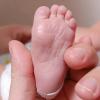Participation rates in cancer population screening programmes continue to decline
The number of participants in the population screening programmes for breast cancer, cervical cancer and colorectal cancer continues to decline. This decline has been going on for years, reaching its lowest point in 2020.







